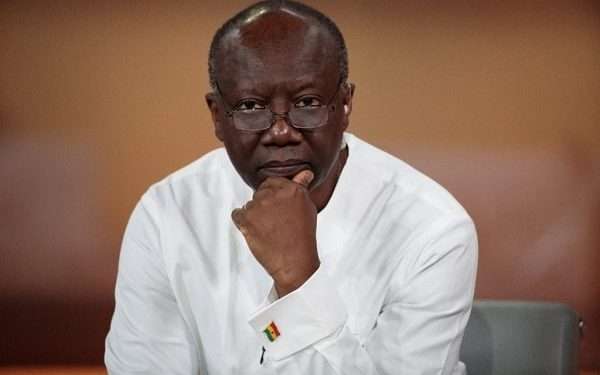$445m Dangote bond issued at 26% coupon rate assigned “AA” rating
DIL is a diversified conglomerate in Nigeria with a leading share in the cement business and a future key operator in the petrochemical industry through its fertiliser and oil refinery business.
- Advertisement -
Fitch Ratings has assigned a $445m senior unsecured bond issued by Dangote Industries Limited (DIL) an “AA” credit rating.
The rating by Fitch Ratings puts the company’s bond into the investment-grade category.
- Advertisement -
According to Fitch Ratings, the $445m bond comprise of two tranches with the first tranche worth $24.8m with a coupon rate of 12.75% and a maturity period of seven years.
- Advertisement -
The second tranche is worth $420.5m with a coupon rate of 13.5% with a maturity period of 10 years.
According to Fitch, proceeds from the bonds will be used to partly finance the completion of projects by Dangote Industries Limited and it’s petrochemical plants.
DIL is a diversified conglomerate in Nigeria with a leading share in the cement business and a future key operator in the petrochemical industry through its fertiliser and oil refinery business.
Its strategy is to gradually establish a downstream industry in Nigeria and be the largest urea producer in Nigeria. It also aims to make Nigeria a net exporter of refined petroleum products and petrochemicals by 2026.
KEY RATING DRIVERS
National Scale Rating: DIL is rated on Fitch’s Nigerian National Rating scale. Its business model, profitability and leverage metrics are commensurate with an ‘AA(nga)’ rating category. DIL generates a majority of its revenue from the domestic market and borrows in both Nigerian naira from local banks and in US dollars from international markets.
Prior-Ranking Debt: DIL has significant secured debt we view as prior-ranking to its newly issued unsecured bonds. The bonds include the standard covenant package for local bond issuance. Their documentation includes negative -ledge and cross-default provisions. Fitch’s expectations of recovery result in a Recovery Rating of ‘RR4’ and bond ratings that are at the same level as DIL’s National Long-Term Rating.
- Advertisement -
Cement a Major EBITDA Contributor: Dangote Cement (DCP) is a significant contributor to DIL’s consolidated profile. The company is supported by large-scale operations in Nigeria and pan-Africa. In 2020, DCP’s EBITDA contribution to DIL stood at 93%, which we forecast to remain high until 2022 when contributions from the fertiliser business increase.
Strong Cement Growth: The cement business recorded significant recovery in sales volume due to increases in prices and demand across DCP’s main markets. Revenues rose 34% yoy in 2021 on growth in Nigeria and pan-Africa, despite volatility in landing cost of cement and clinker. EBITDA in 2021 increased 9% to USD1 billion (24% in local currency). Additionally, the company’s export strategy is expected to ramp up, which could lead to sizeable volume sales.
Lower Urea Output: DIL’s urea plant was commissioned in 2021 following delays, with a 25% utilisation rate of line 1 in 2021 and 0% in line 2. Both lines were fully operational as of May 2022. Gas compressor issues and, as a result, low pressure of gas supplied to the plant were the main factors behind the delay, along with a delay in obtaining regulatory approvals. Gas pressure has recovered in 2022, and management have conservatively assumed utilisation rates for the respective lines to increase to 55% and 50% in 2022, 65% in 2023 and 82% by 2025.
Moderate Refinery Execution Risk: DIL’s refinery project is on track to be completed by 2023, and requires an additional USD1.1 billion capex in 2022 to be partly funded by the newly issued bonds. Considering the importance of the refinery’s cash flow contribution to the company’s deleveraging capacity, the timely completion of the project is a key driver of our rating, and only limited delays or cost overruns may be tolerated within the current rating.
Refinery to Benefit Operational Profile: The refinery project is expected to sustain strong margins and yield solid cash generation, adding diversification to DIL’s profile and allowing rapid deleveraging. Once operational, we expect this project to contribute around USD1 billion to EBITDA annually when ramped up from 2024.
Limited Financial Flexibility: Should refinery completion costs overrun or market conditions in the cement or urea sector deteriorate materially, we do not believe that DIL’s existing creditors would have further lending capacity. We believe that further asset sales, either in cement, or stakes in the projects, would be the more likely options to fund the refinery.
High Leverage: We estimate funds from operations (FFO) gross leverage to have been high for 2021 at above 7x, up from 4.7x in 2019, due to continuing capex for the refinery plant. We expect DIL to start deleveraging meaningfully from 2023.
Weak Corporate Governance: DIL has a complex group structure with a large amount of related-party transactions, with a negative effect on operational and financial transparency. The group structure is further complicated by the Nigerian National Petroleum Corporation’s 20% stake in the refinery project. We also view the dominance of Aliko Dangote, as CEO and the main shareholder, in operations as an additional risk.
Parent Subsidiary Linkage: Greenview International Corp (Greenview) has majority ownership in DIL. We view the legal incentives as high based on parental guarantees. Strategic incentives are also high as DIL contributes all EBITDA generation. The operational incentive is moderate. As a result, we do not notch DIL’s rating from our credit assessment of Greenview.
- Advertisement -


